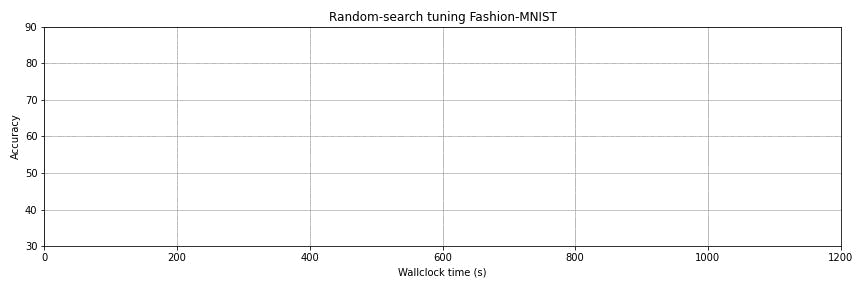Syne Tune: Large-Scale and Reproducible Hyperparameter Optimization





This package provides state-of-the-art algorithms for hyperparameter optimization (HPO) with the following key features:
Wide coverage (>20) of different HPO methods, including:
Asynchronous versions to maximize utilization and distributed versions (i.e., with multiple workers);
Multi-fidelity methods supporting model-based decisions (BOHB, MOBSTER, Hyper-Tune, DyHPO, BORE);
Hyperparameter transfer learning to speed up (repeated) tuning jobs;
Multi-objective optimizers that can tune multiple objectives simultaneously (such as accuracy and latency).
HPO can be run in different environments (locally, AWS, simulation) by changing just one line of code.
Out-of-the-box tabulated benchmarks that allows you simulate results in seconds while preserving the real dynamics of asynchronous or synchronous HPO with any number of workers.
What’s New?
Andreas Mueller, co-creator and core contributor to scikit-learn, used Syne Tune extensively to optimize parameters of a hypernetwork which solves tabular classification tasks faster than state of the art boosted decision tree algorithms. Check out the video.
The experimentation framework of Syne Tune, providing an easy access to all the different methods, execution backends, and ways to run many experiments in parallel, is now available in
syne_tune.experiments, there is no need to install from source anymore. This framework is the best place to start serious experimentation work with Syne Tune.New tutorial: Distributed Hyperparameter Tuning: Finding the Right Model can be Fast and Fun. Provides an overview of Syne Tune and its experimentation framework.
You can now create comparative plots, combining the results of many experiments, as shown here.
Local Backend supports training with more than one GPU per trial.
Speculative early checkpoint removal for asynchronous multi-fidelity optimization. Retaining all checkpoints often exhausts all available disk space when training large models. With this feature, Syne Tune automatically removes checkpoints that are unlikely to be needed. Details.
New Multi-Objective Scheduler:
LinearScalarizedScheduler. The method works by taking a multi-objective problem and turning it into a single-objective task by optimizing for a linear combination of all objectives. This wrapper works with all single-objective schedulers.Support for automatic termination criterion proposed by Makarova et al. Instead of defining a fixed number of iterations or wall-clock time limit, we can set a threshold on how much worse we allow the final solution to be compared to the global optimum, such that we automatically stop the optimization process once we find a solution that meets this criteria.
Getting Started
Next Steps
Tutorials
- Basics of Syne Tune
- How to Choose a Configuration Space
- Using the Built-in Schedulers
- Multi-Fidelity Hyperparameter Optimization
- Benchmarking in Syne Tune
- Visualization of Results
- Rapid Experimentation with Syne Tune
- How to Contribute a New Scheduler
- How to Implement Bayesian Optimization
- PASHA: Efficient HPO and NAS with Progressive Resource Allocation
- Using Syne Tune for Transfer Learning
- Distributed Hyperparameter Tuning: Finding the Right Model can be Fast and Fun